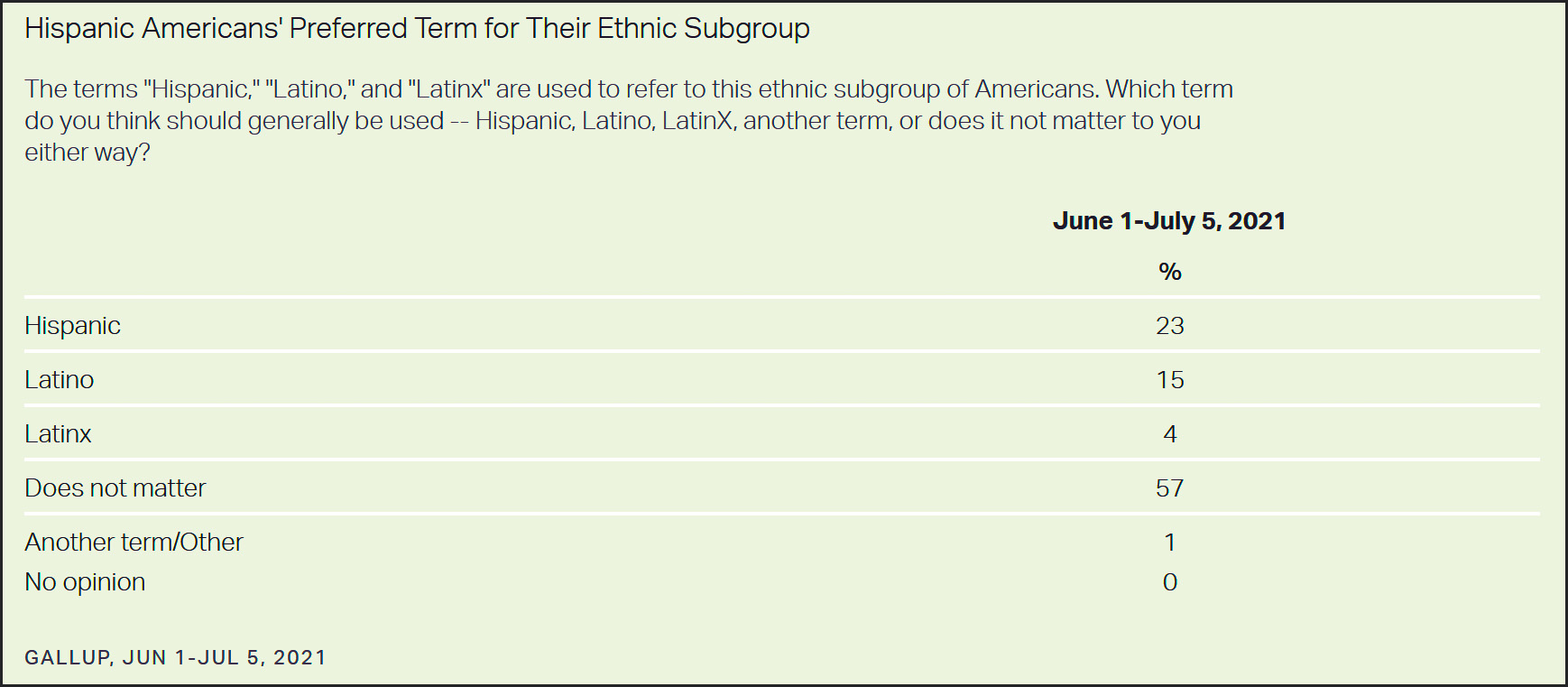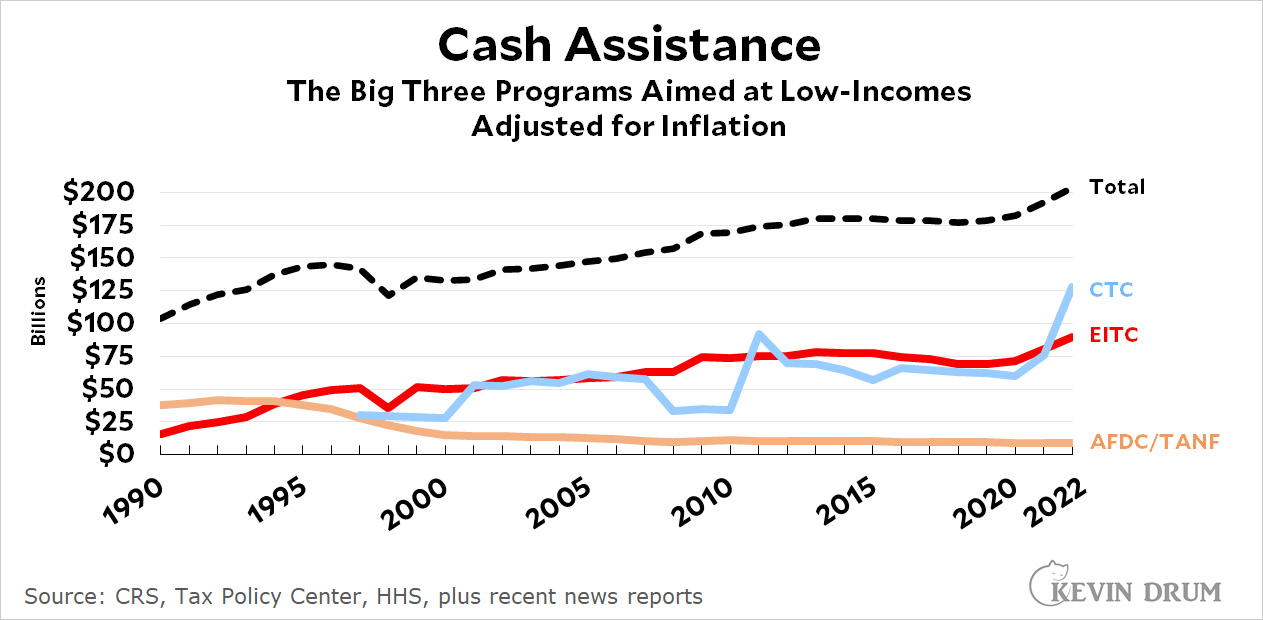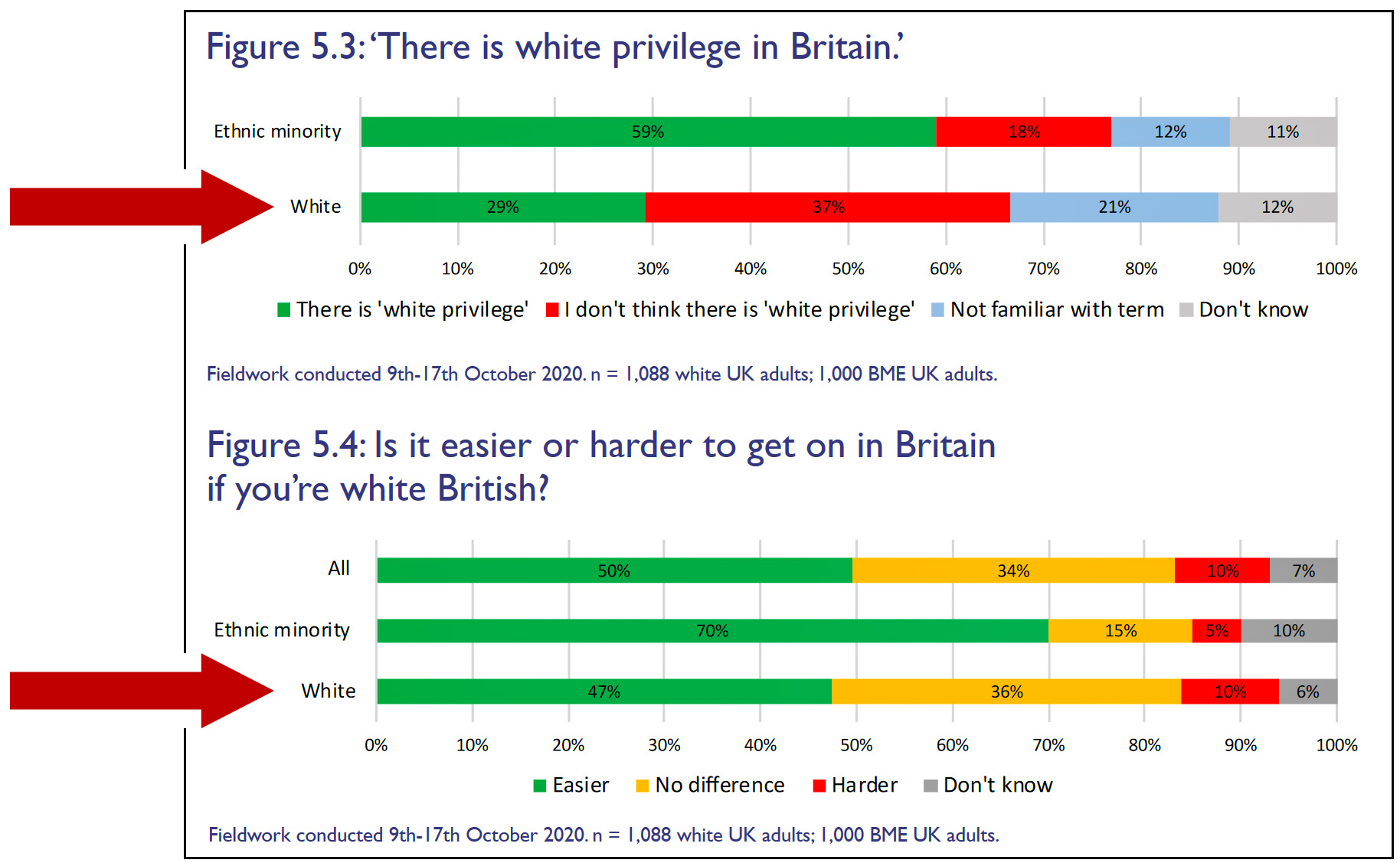The $300-per-month Child Tax Credit seems like it should be a no-brainer. It's $300 per month! No paperwork involved! That's $3,600 each year for anyone with kids. You'd think everyone should love it. But Bill Scher reports otherwise:
The public is not yet in sync with Democratic leaders. In a mid-July Morning Consult poll, only 35 percent of voters said the expansion should “definitely” or “probably” be made permanent, with 52 percent saying the opposite. A YouGov poll from around the same time found only 30 percent of voters favored permanent expansion; 46 percent opposed it.
These numbers probably surprised Biden and other top Democrats. They certainly surprised me. As I wrote here in February, giving people money is typically a political winner. But if the expanded credit doesn’t become one, then it may not survive budget reconciliation.
I doubt that these polling numbers are a coincidence. About 40% of American households have kids, and for the most part these folks apparently like getting $300 per month. The other 60% don't have kids and are not as thrilled since they don't themselves get anything.
In other words, these poll numbers shouldn't really surprise anyone. It's also worth noting a couple of other things. First, the expanded CTC was passed in the context of responding to the pandemic, which means most people probably think about it that way. Even recipients might think that "pandemic assistance" shouldn't be made permanent.
Second, Biden's no-strings-attached CTC payments are viewed by conservatives as a return to old-style welfare. There are no work requirements, no time restrictions, and no income limits. It's just automatic money for parents who don't work. Needless to say, they aren't in favor of that.
This is hardly definitive, but progressives ought to take it as a challenge to their "just give them money" mantra when it comes to federal assistance. We already do give poor families a fair chunk of money in the form of the EITC, and it's a good bet that doling out even more cash is not really a very popular policy.
In fact, it might or might not even be good policy. For that, we'll have to wait a year or three for the wonks to study the effects of the Biden CTC.









